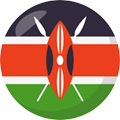Africa Safari Travel - FAQs
Frequently Asked Safari Questions
-
What is 'Safari' or 'African Safari'?Open or Close
The word safari means "journey" in Swahili. Originally from the Arabic (safara) meaning travel. The verb for "to travel" in Swahili is "safiri", the noun for the journey is "safari". These words are used for any type of journey, e.g. by bus from Nairobi to Mombasa. A safari therefore is an overland journey. It usually refers to a trip by tourists to Africa, traditionally for a big-game hunt and in more modern times to watch and photograph big game and other wildlife as a safari holiday. There is a certain theme or style associated with the word, which includes khaki clothing, belted bush jackets, pith helmets or slouch hats, to animal skins. They travel in custom-built safari vehicles. Although the word safari came to popular usage in reference to hunting and touring expeditions in East Africa, it is now used generally to mean any long or adventurous journey or expedition, e.g. wildlife watching safaris, photography safaris, eco-safari etc.
Safari has now become a more eco-friendly form of adventure for people of all ages and walks of life. Travelling to Africa, Safari has become the most popular form of holiday to Africa, combining adventure with total comfort to ever-increasing travellers. On a standard safari, one can visit Africa's beautiful game reserves, seeing hundreds of rare birds and mammals from your chauffeured safari vehicle. Relax in comfortable world-class hotels and lodges surrounded by scenic valleys and plains. Time takes on a new meaning as you learn to sit quietly listening to the sounds of Africa. The balance of nature will no longer be empty words you will see it daily in the drama of animals fighting for their survival and coexistence..
-
When is the best time to go on safari?Open or Close
All Year Round! But it also really depends on the type of animal you wish to see. Certain reserves have good game viewing all year round but others will have particularly good elephant sightings or other migratory animals at different times of the year. It is generally felt that the African winter (June - August) is the best time to go on safari, as the grass is dry and vegetation sparse making game viewing easier. It is also the time when animals are on the move looking for food and water. In Kenya and Tanzania, you have the memorable opportunity of witnessing the migration of over two million animals.
-
Can I Visit Africa from Any Country?Open or Close
Yes, we have an international clientele. We receive visitors from all-over the world! We can make all arrangements in Africa including transportation, accommodation and activities for anybody from any part of the world without any discrimination. However, we can only arrange international flights originating from selected countries where we have a representative office. Visitors from other areas not represented are requested to make own flight arrangements to Africa. Please Contact us for more!
-
How Do I get to Africa?Open or Close
Africa can be reached by regular international flights to its major cites. AfriChoice! will ONLY arrange your international flights to Africa that originate from selected countries where it has arepresentative office. Visitors from other areas not represented are requested to make own flight arrangements to Africa. There are many airlines operating direct flights to Africa from Europe, United States and Asia. You can also get easy connections where there are no direct flights. You might choose to approach your local travel agent for assistance regarding the flight connections. Please Contact us for more! We however arrange flights within Africa. Trains and self-drive are convenient options for travel within Southern Africa.
-
What are the entry requirements?Open or Close
All visitors are required to carry a passport that is valid for six months beyond the intended length of stay. Nationals of certain countries do not require visas - this depends on the country you are visiting. It is advisable to check with the Consulate of the country that you intend visiting for the latest visa and entry requirements. The list below contains the current visa requirements applicable to most North American and European countries.
-
What should I pack for my trip?Open or Close
Temperatures in winter are generally mild but can become considerably cooler in the evening, so pack multiple layers of clothing to ensure you stay comfortable on afternoon game drives and walks. It goes without saying that the standard safari gear must include a broad brim hat, sunscreen and mosquito repellent. In areas where malaria is prevalent, summer is generally a more risky time to travel. So, before you go on safari, consult your doctor for the necessary anti-malaria medication.
-
Do I need to know the local languages?Open or Close
No. English is spoken throughout East and Southern Africa, especially by those involved in the tourist trade. European and Middle Eastern languages spoken in Africa include German (Namibia) and Arabic (Tanzania). At a reasonable fee, you can get a driver / guide who speaks your local language. Our drivers speak various languages and we have specialists for French, Spanish, Italian, Swahili, Japanese, Indian, Chinese and Russian.
-
How is the local food and drinks?Open or Close
Great! International cuisine is available at all the hotels you will be staying. Special dietary requirements are catered for throughout Africa if you need. Please give us advanced notice so that we can make arrangements with the lodges and camps you are scheduled to stay at. Most restaurants offer selections for vegetarians, depending on their forte. Local specialties can be surprisingly good! With the exception of a few lodges, halaal and kosher food is not available at most camps/lodges.
-
Are there any medical precautions to take?Open or Close
Vaccination requirements change from time to time. Some countries require advance inoculations for yellow fever (and certificates thereof) that are good for 10 years - AfriChoice! will advise you of these. Malaria is present in many parts of Africa - we will advise you if you will be visiting a malaria area. We suggest you consult your local doctor or health department for information on malaria prophylactics and the latest health precautions. If you are on prescription medication, please ensure you have an adequate supply to last the duration of your stay and a copy of your prescription(s).
-
Is Africa good for Family Holiday Travel?Open or Close
Africa offers outstanding value for families. However, some destinations and establishments cater more fully for the enjoyment of children than others. In Kenya, children five years old and younger are generally not allowed on game drives in the parks and reserves. Travel to Tanzania is not recommended for children younger than eight years old. In Botswana and Zambia many lodges do not take children under 12 years. Most lodges have swimming pools and baby-sitting services. Please contact us for more specific information.
-
What type of safaris do you operate?Open or Close
AfriChoice! offers the following types of safaris: road photographic safaris, lodge safaris, fly-in safaris, luxury tented camps safaris, budget camping safaris, sit-in-car safaris and self drive. Please note that not all of these safari types are available in each country that we operate in. Go to a specific country page on our web site to see the type of safaris available.
-
How early should I book my safari trip?Open or Close
It is better to book as far in advance as possible to ensure availability at the time you wish to travel (4-6 months), especially during the peak seasons (July & August and Christmas/New Years). This is especially important for those wishing to travel on private custom safaris and those adding extensions to scheduled trips.
-
What is a lodge safari?Open or Close
On a lodge safari you travel from lodge to lodge and do game drives with one of our driver/guides. The lodges we use are essentially hotels in the bush. They accommodate between 100 and 200 people. They provide most of the amenities found in a hotel (e.g., restaurant, lounge, swimming pool, etc.). This is a good choice when traveling with children or if you want certain creature comforts when you return from game viewing.
-
What is a luxury-tented camp safari?Open or Close
Luxury tented camp safaris are done either by vehicle or light aircraft. In the case of a fly-in safari you will fly from one reserve to the next. This reduces the amount of travel time considerably and maximizes game viewing opportunities. Permanent tented camps provide accommodation ranging from comfortable to luxurious. Most consist of large walk-in tents on elevated wooden platforms, with beds, chairs, furniture and an en-suite bathroom with hot and cold water and flushing toilets. Permanent camps accommodate a smaller size group (20-30 people) than lodges allowing a more personal interaction with the natural habitat.
-
What is a budget camping safari?Open or Close
This is a limited participation camping safari that requires that you put up and take down your tent. The accommodation is in 2-person igloo style tents with a foam mattress. All camping equipment is provided with the exception of sleeping bags, which you can bring (recommended) or hire (approximately $20). All meals are included while camping. The safari leaders are full-time employees and trained professional guides. Detailed information on the history of the area, fauna and flora is given to the participants during the safari. A camp assistant helps with general camp chores and duties.
-
Can I drive myself on safari?Open or Close
Yes! Ask for self-drive safari or safari car hire. On a self-drive safari you will be met at the airport upon your arrival and assisted with the formalities of picking up a rental car. You will be given a detailed itinerary, vouchers and maps for your trip. You would then proceed, unguided, on the tour according to the set itinerary. Accommodations are at hotels, lodges, chalets and rest camps.
-
How many people do you take on one safari?Open or Close
We believe "Less is more!" Small group travel allows for flexibility and informality, which is why our journeys operate with a maximum of 14 travellers. Because groups are small, we’re able to accommodate the interests of our travellers while allowing plenty of opportunities for independent exploration. We offer the ease and flexibility of independent travel without the hassles. Some of our safaris have guaranteed departures with a minimum of two people and are limited to a maximum of 14 people (if more than 7 people are on a safari, we use two vehicles). Other safaris especially the tailor-made can depart on a day of your choice. As a rule, each person has a window seat guarantee. Some of the camping safaris require a minimum of 4 people and allow a maximum of 12 people per departure.
-
What is a single room supplement?Open or Close
A single supplement is a fee imposed by hotels, lodges and camps on single travelers. Tour prices are quoted based on two people sharing accommodation. If someone takes a room by themselves they have to pay the per-person price plus the single supplement fee. It is the excess cost you pay in occupying a room designated to take two people by yourself alone.
-
Can I book a safari alone, I mean solo?Open or Close
Some pople frequently ask if they can travel alone or join a group? With AfriChoice! the answer is Yes! provided there is another single traveler of the same sex, on the same safari, and the other person is naturally willing to share! Single travellers on our standard safaris have the option of paying a single supplement for a single room or paying the lower twin share price and sharing with another traveller of the same sex who is also willing to share. If we are unable to match you with another traveller, you will travel in a single room at no additional charge. We call this our "Mix-N-Match Safaris" option. Please note that this option is not available on our deluxe collection of safaris. So, go on and join today! Our "Mix-N-Match Safaris" is a great way to meet like-minded people from all over the world, of all ages and interests!
-
Can I pay for my booking using a Credit Card?Open or Close
We accept Visa, Mastercard and American Express for your safari deposit. The balance is due 60 days prior to departure and is payable by money order or wire transfer to our bank account.
-
What are your Booking Terms and Conditions?Open or Close
We have a detailed Booking Terms and Conditions explaining how you are suppossed to book, pay and get your servicec confirmed. You will also find conditions relation to your trip cancellation, refund policy as well as our liability once you contract us as your preferred tour operator or safari outfitter. To read these and more, Click here to view our detailed Terms and Conditions.
-
What type of cars do you use on safari?Open or Close
AfriChoice! uses 4x4 safari cruisers as well as mini buses of safari vans in East Africa. Whichever you choose, the price may vary slightly. In Southern Africa we use mini buses, open-roof vehicles and 4x4 vehicles on safari. The specific vehicle used on a particular safari depends on the country and the reserves to be visited. All vehicles are equipped with two-way radios and are maintained to provide the maximum level of comfort and safety.
-
What do letters B, L and D refer to?Open or Close
You will find these on your day-to-day safari itinerary that we shall send to you. The letters indicate the meals that are included on a safari or tour. B = Breakfast, L = Lunch, D = Dinner. B&B (or simply B) refers to Bed and Breakfast. You may also see DR that refers to Day Room.
-
Who goes on safari?Open or Close
An Africa Safari is perfect vacation for people of all ages, from eight to eighty-eight. A safari is not particularly strenuous or tiring, so anyone in reasonably good health should be able to enjoy his or her stay. Because a safari has something to offer everyone, it has become an increasingly popular motivation incentive as well as a family vacation.
Explore Our Amazing Destinations!
We have the widest range of safari products in East Africa and Beyond.
Affordable, Tailor-Made Safaris Customized to Suit Your Taste and Style.
-

Kenya
KENYA - Traditionally known as the true home of African Safari & Beach Holidays. -

Tanzania
TANZANIA - The land of Kilimanjaro, Serengeti National Park and Zanzibar Islands. -

Uganda
UGANDA - Popular for the Gorilla Tracking Adventures and the source of River Nile. -

Rwanda
RWANDA - Emerging safari destination also know for it Mountain Gorillas and more. 
Indian Ocean
AFRICA ISLANDS - Know for its Turquise Blue waters and the pristine sandy beaches.-

Others
OTHER DESTINATIONS - We also offer trips to holidays to other African countries of interest.



 Paul Kitching - UK
Paul Kitching - UK Karen Howard - CANADA
Karen Howard - CANADA
